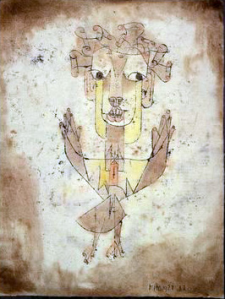In the colonized land of Judea, poor marginalized shepherds abided in the field, watching over flocks belonging to others. When suddenly, a messenger of the Lord came upon them, and the glory of God shone forth. They were filled with great fear. But the messenger said unto them, “Do not be afraid, for behold, I bring you, and all peoples of the world, good tidings of great joy. For onto you is born this day, in the city of David, a Liberator, who is Christ the Lord! And this will be a sign to you, you will find an infant wrapped in swaddling-clothes lying in a trough located in a filthy, manure-filled barn.” Suddenly there appeared with the messenger a multitude of the heavenly host praising God, and singing, “Glory to God in the highest, and on earth peace, good will towards humanity” (Lk. 2:8-14).
The Christmas story has been retold so often, through sermons, church plays, popular literature, and movies that a false memory, detached from all reality, has been constructed. This memory romanticizes the birth of Jesus, thus masking the radical political implications of the event. Today, under our Christmas trees, we usually place a nativity scene among the multitude of conspicuous gifts which we cannot afford to give to recipients who seldom needs what we bought on credit. The baby Jesus, usually white with blue eyes and blond hair, rests comfortably in a wood-frame crib as angelic cows and donkeys gaze upon the miracle. The proud parents survey the sanitary scene as regal kings and peasant shepherds come to worship. Winged white angels surround the scene as if singing the glories of this event. And yet, stripping through the mythology we are left with a tale of the liberator of people being born in a dirty, grimy barn. Barns are smelly soiled spaces were animals, and the malodourous manure they produce, and the flies attracted to the manure create unsanitary conditions. In addition, a young maiden, either a teenager or someone who is not much older, goes through the bloody and messy process of childbirth. María was forced, like any other barn animal, to give birth amidst the unhygienic surroundings of an outbuilding.
We do not know if a midwife was present for the actual birthing event. The text is silent on that matter. But if there wasn’t one, the birthing process could only be considered to have been scarier and more traumatic. Upon the birth of Jesús, a place was needed for him to rest. Proper furniture did not exist. The text tells us that he was placed in a manger (Lk. 2:7), which our Christmas nativity scene interprets to be some type of crude crib. In reality, a manger was either a wooden box or a hole on the cave wall. The purpose of the manger was to place animal feed from where cattle ate. If the barn itself was not septic enough, the newborn was placed in an animal trough. In a very real sense, Jesús physically entered this world homeless.
The radicalness of the Gospels, usually missed by those who are privileged by houses within empire, is that the Jesús narratives are anti-colonial literature about a native resident displaced by the invading colonial power. The opening words of the Gospel of Luke set the stage. Luke begins by stating that in those days, an imperial decree was ordered from the colonial center of Rome by Cesar Augustus. To increase the revenues flowing toward the colonizer, all within the empire would be taxed. This revenue thief occurred when the Roman aristocrat, Publius Sulpicius Quirinius served as governor of Syria. To facilitate the taxing, with no regard to what hardship it might cause to the colonized, everyone had to return to their city of origin. So José left the city of Nazareth located in Galilee, toward Judea, to the city of David, which is called Bethlehem, for he was of the house and lineage of a once heroic and mighty king. This descendant of royalty now made his living as a laborer, a carpenter. To Bethlehem he traveled with his espoused wife María who was great with child, in order to be taxed (Lk. 2:1-5). Remembering Jesus, all too often ignores the destitution of Jesús caused by the colonization process, missed when the scriptures are read from the center of empire.
The Gospel narratives depicts a careful dance which takes place between Rome the colonizer and Jesús the colonized. Not far from the story-telling surface is the real world dynamics and consequences of colonization. We see it throughout Jesús’ everyday experience and how he responded to the circumstances brought about by the economic and political occupation of Judea, as made evident by questions posed concerning paying tribute to Caesar (Mt. 22:20), constantly facing danger for preaching of another reign or kingdom more powerful then the one to which Jews were subjugated (Mk. 1:15), or given a death sentence under the charge of being “king of the Jews,” hence a rival sovereign (Mk. 15:2). Even the very audience that first heard the words of Jesús was fellow colonized compatriots, many of who held an abiding hatred toward the Roman oppressors. From this colonized space, the Gospel message is shaped and formed, and ignoring this historical reality leads to false remembrance, if not pure illusions.
We are told that among Jesús’ entourage was Matthew the tax collector (Mt. 10:3), and Simon who was called the Zealot (Lk. 6:15). Tax collectors and zealots were deadly enemies. Given an opportunity, zealots or revolutionaries were known for ramming their blades into the backs of any tax-collecting collaborator upon whom they could lay their hands. And yet, these politically sworn enemies, the one colluding with the colonizer and the one violently rebelling, were counted among Jesús’ disciple. What held them in fellowship? Could it be that Jesús modeled a new strategy between the two extremes represented by Matthew and Simon? If so, what is this reconciling praxis?
Jesús tells us to render to Caesar what is Caesar and to God what is God’s (Mt. 22:21). Although Jesús is specifically referring to the colonizer’s tax when he states what to render to Caesar; it seems that this imperial tax as sign signifies some deeper meaning. The tax to the empire underwrites the very structures that makes the colonization of Judea possible. Without the tax, colonialism would be useless. Such taxes, as illustrated by Cesar Augustus need for a census, create devastation for the colonized, i.e. having to return to one’s city of origin and a greater financial tax burden leading to greater poverty. Yes, we are to give Caesar his tax, not because it is a civic duty, as many modern Euroamericans Christians would argue in regards to filing their own IRS tax returns, but because failure to do so only provided the colonizer with the excuse to send the full force of the empire’s military to domesticate the people with the threat of obviation for the sake of compliance. This is not some hypothetical possibility, it actually occurred in 70 CE which concluded with the destruction of the Temple.
To render unto Caesar what is Caesar may mean to pay the imperial tax as an act of survival (not civic duty), but also, it could encompass returning all of the misery, pain, and despair that colonial rule engenders. The issue raised by Jesús’ call is how to render unto Caesar what Caesar deserves without bringing about the iron fist of Caesar while still planting liberative subversive seeds that may, in some distance future, blossom into salvation from evil powers, including colonial powers. The questioned raised for us by Jesús, the colonized man, is how to display compliance for survival’s sake while disrupting the very social structures that creates, forces, and demands compliance.
This op-ed is derived from my book The Politics of Jesús: A Hispanic Political Theology



